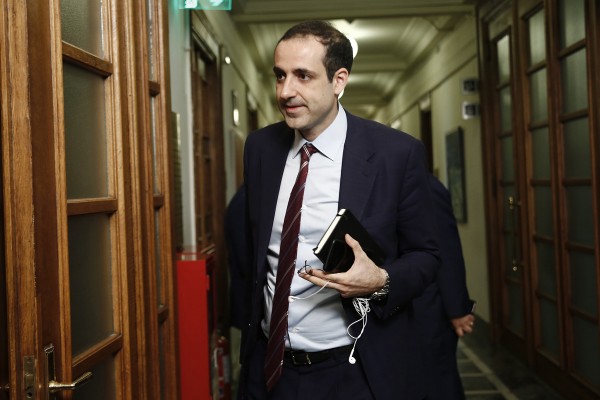Following a three-day mission to Suriname as part of a six-country mission to the Caribbean, the International Press Institute (IPI) said today it looks forward to working with the Surinamese government on a legislative package that would decriminalise libel and insult as well as institute self-regulatory mechanisms to oversee media standards in the country.
In meetings with the IPI delegation, Surinamese government officials expressed support for the revision of the country’s defamation laws so long as the changes were accompanied by sustainable journalist training and a reliable avenue for citizens to voice complaints against the media.
“Journalists should not be jailed just for writing something that someone else doesn’t like,” stated Dr. Jennifer Simons, speaker of the Surinamese National Assembly and a member of the governing party. “But there must be a balance: people need the power to defend their dignity.”
Members of both the government and opposition coalitions spoke in support of increased training in media ethics and responsibility. Chandrikapersad Santokhi, the leader of Suriname’s largest opposition party, told IPI: “We will be in support of any proposal that creates more freedom, more responsibility, and more professionalism in the press.”
“I was impressed by the seriousness with which the Surinamese government approached the issue of criminal defamation, and I am confident that there is an opening to work on comprehensive legislative changes that would also include a modern, civil-based press regulatory scheme to address concerns about media responsibility ” said IPI Executive Director Alison Bethel McKenzie. “IPI is eager to use its international expertise to support the Association of Surinamese Journalists in presenting a broad set of recommendations to the National Assembly later this year.”
Suriname’s insult laws are the harshest in the Caribbean, with citizens facing up to seven years in prison for “public expression of enmity, hatred, or contempt toward the government of Suriname.” Insulting the head of state or a public authority carry possible prison sentences of five and two years, respectively. These laws are in addition to criminal libel laws, which can land journalists behind bars for up to three years.
Bethel McKenzie was joined on the mission by John Yearwood, The Miami Herald‘s world editor and chairman of IPI’s North American National Committee; Scott Griffen, IPI press freedom adviser for Latin America and the Caribbean; and Wilfred Leeuwin, president of the Association of Surinamese Journalists (SVJ), a member of the Association of Caribbean MediaWorkers, IPI’s strategic partner in the region.
Several individuals from NGOs and civil society with whom IPI met in Suriname criticised the media for writing stories lacking context and in-depth research, a sign, in their opinion, of a lack of training and ethics. However, local journalists told IPI that low salaries, combined with small staffs and high production demands. IPI learned that, recently, a number of leading journalists have gone to work for the government or in public relations due to better pay.
At a press conference in Paramaribo following the conclusion of the mission, Bethel McKenzie told reporters that IPI and SVJ planned to engage both media owners and the national journalist academy to address those concerns, as part of an integral approach to strengthening the Surinamese press.
As part of the proposal, IPI will recommend the introduction of a freedom of information act, an idea Surinamese government officials indicated they would support. “Citizens have a right to information, and we must protect that right,” Simons affirmed.
Bethel McKenzie said she regretted that the delegation was unable to meet with Surinamese President Desiré Delano Bouterse, but added she hoped to get the president’s support for the legislative changes on a follow-up visit. President Bouterse was the target of intense criticism last year for signing an amnesty law that exempted former military officers, including himself, from prosecution in the 1982 murders of 15 opposition figures, five of which were journalists.
IPI’s visit to Suriname was part of the organisation’s campaign to repeal criminal defamation laws in the Caribbean. In IPI’s view, such laws can be misused by governments to stifle critical opinion or investigative reporting, and, over time, can lead to self-censorship. Since the campaign began in June 2012, Grenada has repealed criminal libel, and Jamaica and the Dominican Republic are close to passing bills that would remove prison penalties for defamation.
Suriname was the third stop of IPI’s six-nation visit to the Caribbean, which has also included Antigua and Barbuda and Guyana. The IPI delegation will also visit the Dominican Republic, Trinidad and Tobago, and Curaçao, where Bethel McKenzie will give the keynote address at the UNESCO World Press Freedom Day event in Willemstad. A comprehensive report on the state of press freedom in each country will be released this summer.


